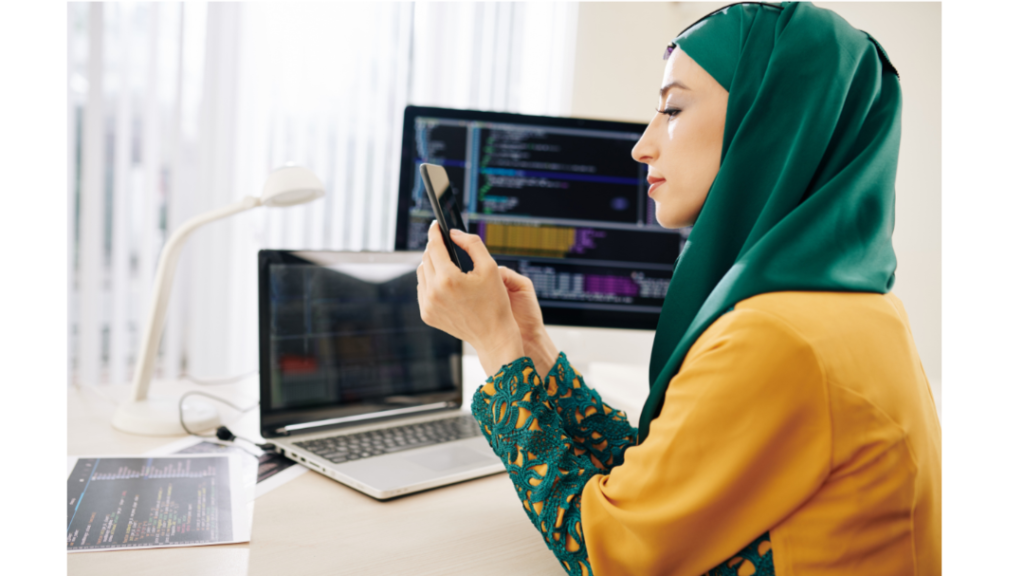The holiest month in Islam, Ramadan, is a time of spiritual devotion, fasting, and increased charitable giving. Alongside its religious significance, it also brings about notable shifts in consumer behavior, particularly in financial transactions. As faith and finance increasingly intersect in the digital space, banking services experience a significant surge in online activity during this period. Digital banking becomes a crucial tool for managing finances, allowing consumers to prioritize convenience, security, and efficiency. Whether making charitable donations such as Zakat and Sadaqah, paying for Iftar meals, shopping for Eid gifts, or handling daily expenses, digital banking is now an indispensable part of Ramadan routines.
The rise in online transactions during Ramadan is driven by heightened consumer spending, particularly in food, retail, and travel. E-commerce platforms offering exclusive Ramadan discounts contribute to a sharp increase in digital payment usage. In Southeast Asia, retail sales during Ramadan 2023 saw nearly a 50% rise, with Malaysia alone experiencing a 40% growth. Online grocery platforms and food delivery services report higher transaction volumes as consumers purchase essential items for Suhoor and Iftar. The adoption of e-wallets, Buy Now Pay Later (BNPL) services, and mobile banking apps continues to grow, reducing reliance on cash transactions. Even in New Zealand, where the Muslim population is relatively smaller, online banking services witness a surge in engagement, particularly in international remittances and charitable giving.
With altered daily routines during Ramadan, mobile banking aligns seamlessly with the lifestyle shifts. Pre-dawn and late-night hours become peak times for various activities, making mobile banking an essential financial tool. A study indicates that more than half of Muslims use mobile devices more frequently during Ramadan, further reinforcing the relevance of digital banking. Islamic financial institutions in Malaysia report higher usage for Zakat contributions and micro-investments. The integration of digital wallets and mobile payment solutions with Islamic financial services is attracting more users seeking faith-based financial solutions.
Consumer behavior during Ramadan differs significantly from other times of the year, with financial activity peaking at specific hours. In Malaysia, internet usage surges around 5 AM, just before Suhoor, as people browse online, complete financial transactions, and prepare for the day ahead. Financial institutions report increased mobile banking logins, fund transfers, and bill payments during these early hours, while e-commerce platforms witness heightened activity post-Iftar, from 9 PM to midnight, as consumers shop for Eid-related purchases. Understanding these peak hours presents banks with an opportunity to optimize service availability and offer targeted promotions during high-traffic periods.
Given the surge in digital banking activities during Ramadan, financial institutions must ensure seamless service delivery while addressing evolving consumer needs. Strengthening digital infrastructure is imperative, as banks must prepare for increased digital traffic by ensuring mobile apps and online banking platforms can handle high transaction volumes without downtime. AI-driven chatbots and 24/7 customer support play a crucial role in assisting users with urgent financial transactions, particularly international remittances. Enhancing security measures is equally vital, as phishing scams and fraudulent transactions tend to rise during high-spending seasons. Banks must reinforce multi-factor authentication (MFA), real-time fraud monitoring, and user awareness campaigns to mitigate security risks. Additionally, tailored financial solutions such as seamless Zakat and Sadaqah donation options, Ramadan savings plans, and exclusive promotions like cashback incentives for Islamic banking transactions cater to faith-conscious consumers and encourage digital adoption.
The evolution of financial behavior during Ramadan highlights a strong preference for contactless and digital payments. The pandemic accelerated this shift, and Ramadan further reinforces it, with QR code payments, e-wallets, and NFC-enabled cards becoming the norm for both in-store and online transactions. Many retailers offer exclusive Ramadan discounts for digital payments, incentivizing widespread adoption. Contactless donations for Zakat and mosque fundraisers are gaining popularity, reducing dependence on cash-based contributions. As Ramadan often comes with increased expenses, from grocery bills to Eid celebrations, financial planning tools see greater demand. Expense tracking apps help users manage budgets while allocating funds for charitable giving, and investment platforms offering halal options witness higher engagement as consumers seek ethical ways to grow their savings. Banks in Malaysia even host Ramadan budgeting workshops to help individuals plan their finances effectively.
Looking ahead, digital banking will continue to play an integral role in enhancing the Ramadan experience. Hyper-personalization through AI-driven banking services will offer tailored recommendations based on individual spending habits. The integration of Islamic financial services is expected to expand, with more banks incorporating Takaful insurance, halal investments, and Sharia-compliant loans into their digital offerings. As the Muslim diaspora remains globally connected, banks will refine international remittance services to facilitate smoother cross-border financial support between families.
Ramadan is not just a period of spiritual reflection but also one of heightened financial activity. The growing reliance on digital banking in Malaysia and New Zealand underscores evolving consumer preferences, driven by convenience, security, and religious obligations. For financial institutions, this shift presents a valuable opportunity to refine digital services, enhance security measures, and offer faith-conscious financial solutions tailored to the unique needs of Ramadan. By doing so, banks can strengthen customer trust and encourage long-term digital engagement beyond the holy month.
#Ramadan #DigitalBanking #IslamicFinance #Fintech #Ecommerce #RamadanShopping #OnlinePayments #ContactlessPayments #Zakat #Sadaqah #FaithBasedFinance

